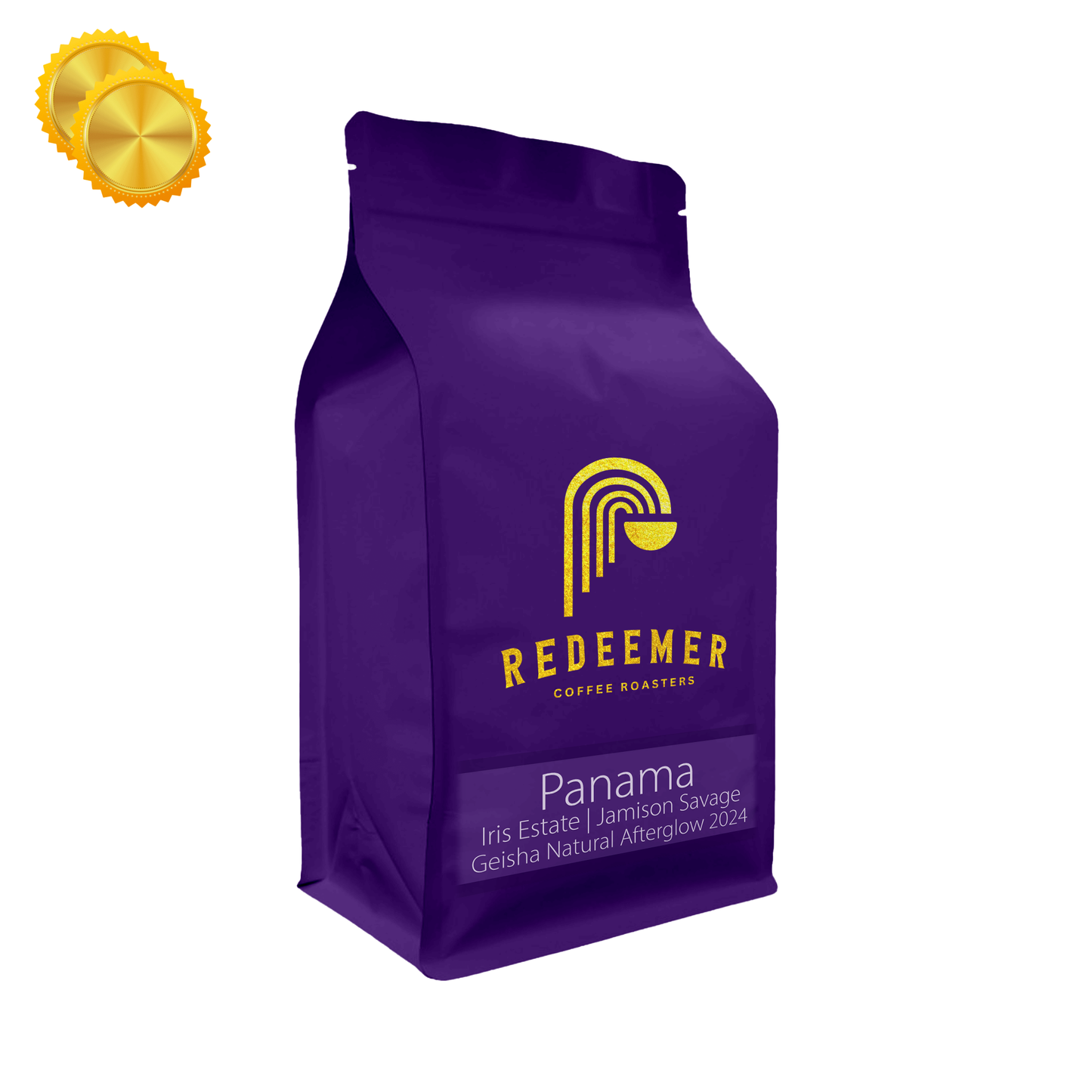
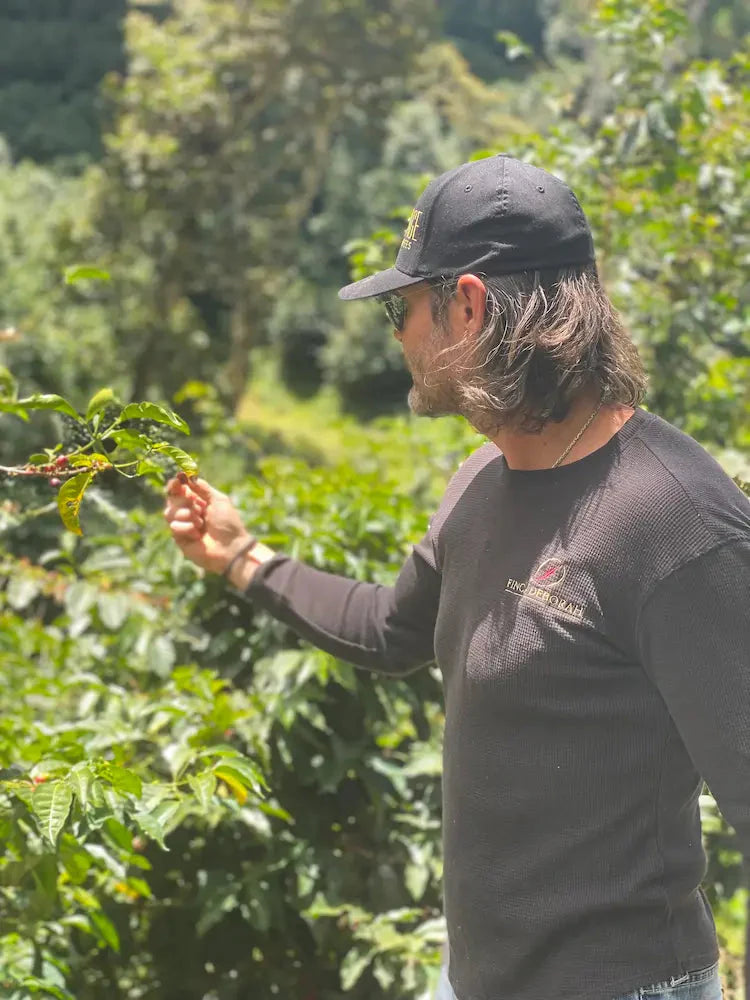
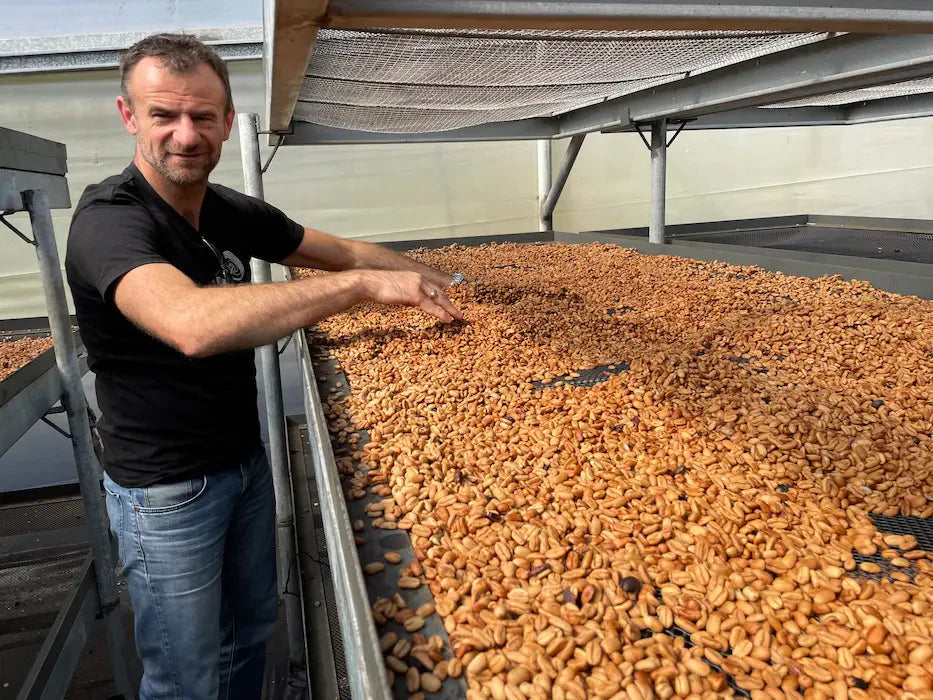
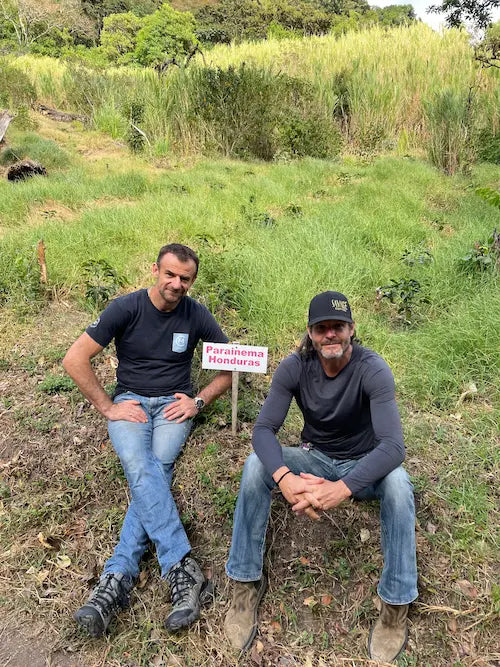
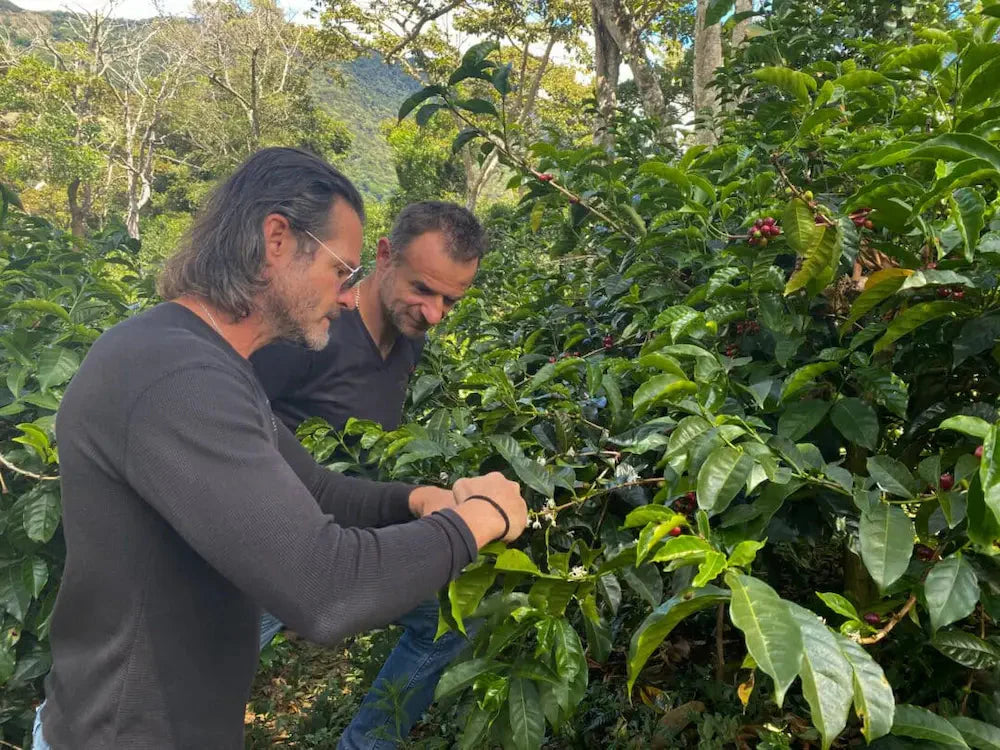
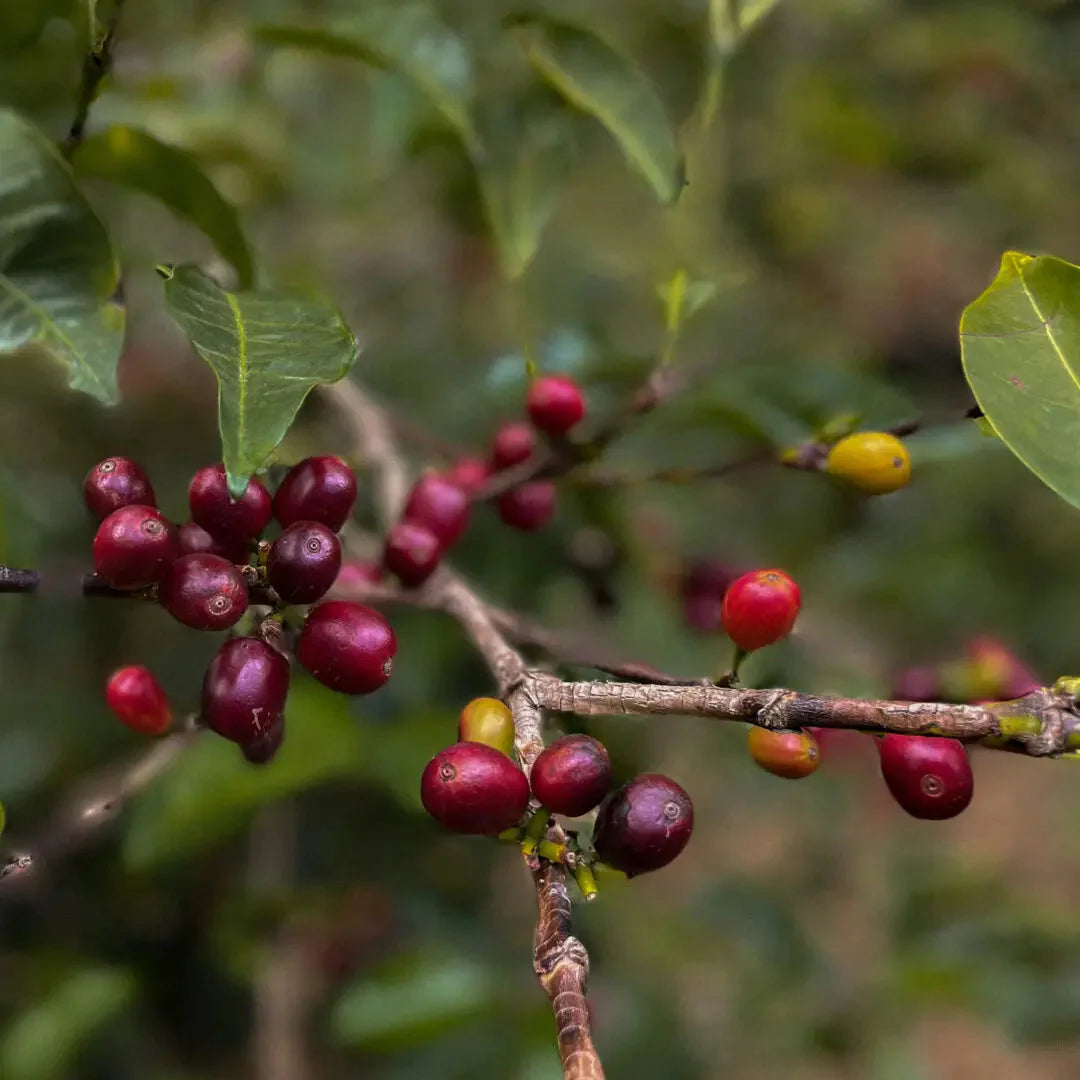
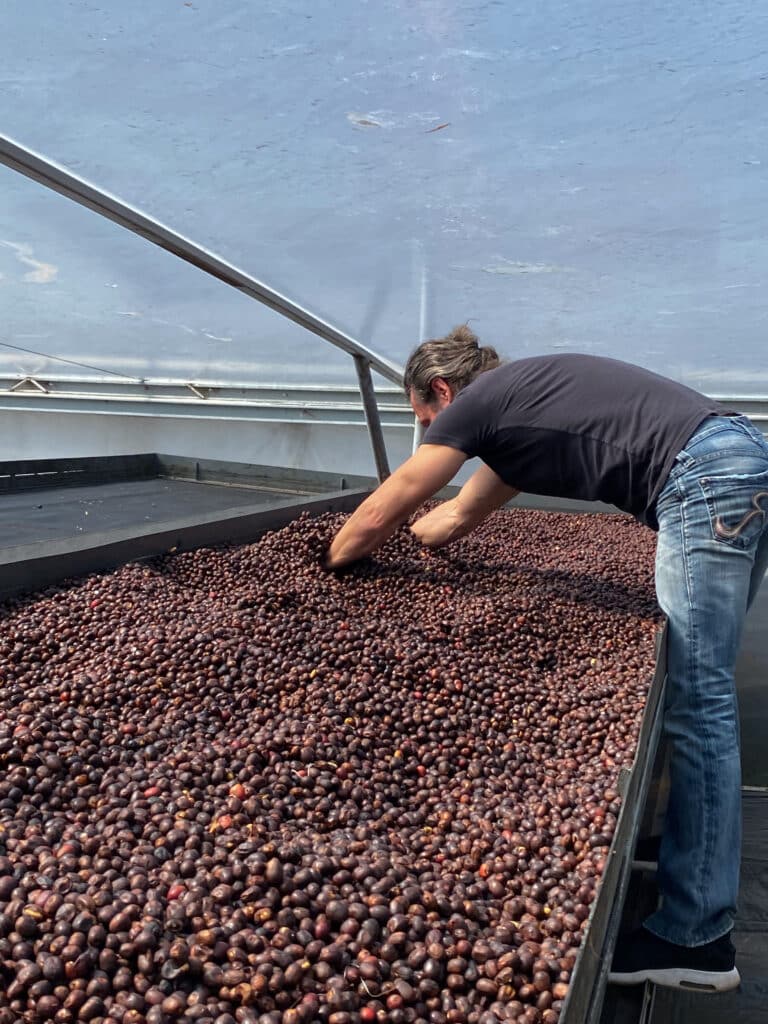
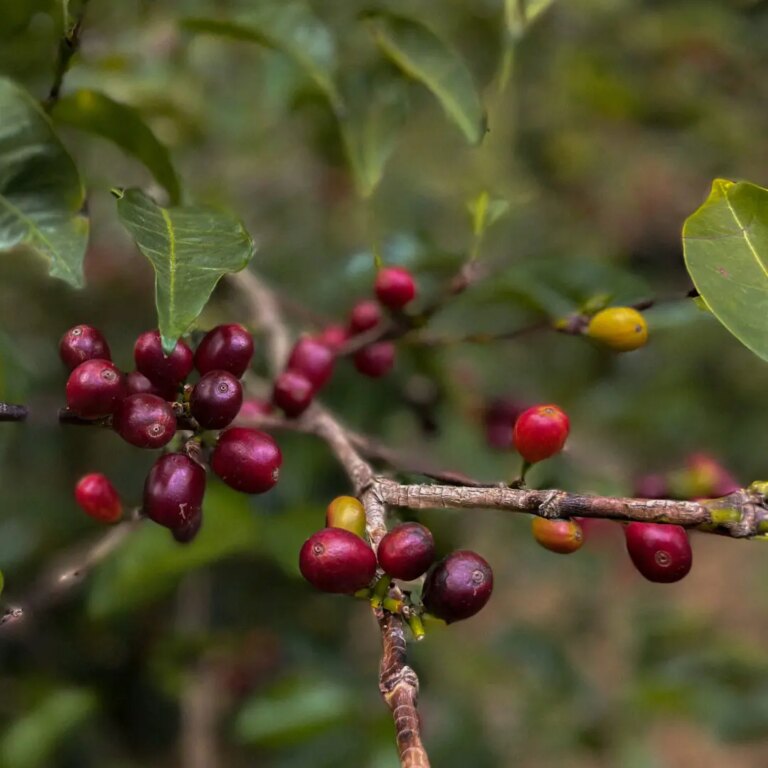
Are you looking to buy Panama | Iris Estate | Jamison Savage | Geisha Natural Afterglow 2024 in Australia?
SCA Score: 92
Suitable with Milk? TBA
Roast Level: Light
BEAN AGTRON: 75
Lot: Afterglow
Producers: Jamison Savage, Sasa Sestic, Elvin Siew
Region Volcan
Annual Rainfall: 1850-2300mm
Harvest: December - June 2024
About Iris Estate
Finca Iris Estate is the latest venture initiated by three exceptionally talented coffee professionals, each driven by a distinct vision for the future of coffee. Their shared belief is that specialty coffee should embody the unique terroir in which the beans are grown, rather than merely reflecting processing techniques. This philosophy guides their quest for the perfect cup.
To showcase this dedication to terroir, producer Jamison Savage has planted a variety of coffee cultivars across the Estate at different elevations, all while preserving the natural landscape and forest. He believes that minimal interference with the ecosystem allows the coffee cherries to fully express the natural flavors and characteristics of their environment. With this approach, Finca Iris Estate is emerging as a beacon of what ultra-specialty coffee cultivation can achieve, and the team is committed to sharing their work with the world.
The three main objectives at Iris Estate for advancing the future of specialty coffee agriculture are: ensuring the coffees truly represent the land from which they originate, enhancing the sustainability of the farm and the well-being of its workers, and bridging the gap between producers and consumers. They aim to achieve this third goal by transparently sharing the processes of cultivation, growth, harvest, and production through online platforms, creating a space where consumers and baristas can connect with the lives of specialty coffee producers in Panama. As this bridge strengthens the connection within the supply chain, the Iris Estate team hopes to shift the industry's focus towards celebrating the producers' work and recognizing that the true value of quality lies in the trees themselves.
About Jamison Savage
Savage Coffee is a project founded by Jamison Savage in Panama's Boquete region. Jamison has established himself as one of the world's most refined coffee producers, with his farm, Finca Deborah, earning top honors in prestigious coffee competitions globally. His coffees are now in such high demand that they are often pre-booked well before the season begins.
For over a decade, Jamison has been perfecting his processing techniques at Finca Deborah. One of his standout lots, Iridescence, is crafted using a method called carbonic maceration, which he adapted from the wine industry. This technique, which Jamison and a select few began employing in 2015, involves fermenting the coffee in a carbon dioxide-rich environment. The process develops a complex flavor profile, enhancing the coffee's fresh fruit and floral notes.
To create Iridescence, Jamison starts with perfectly ripe Geisha varietal coffee cherries, pulping them to leave some fruit on the beans. The beans are then placed in CO2-infused tanks for up to two days, with meticulous monitoring to ensure optimal fermentation. Finally, the beans are dried on raised beds, turned every 30 minutes to ensure even drying, and packed in vacuum-sealed bags.
Another exceptional offering, the Anthem lot, is a classic natural-processed Geisha. This coffee is slowly dried for over 25 days on a custom-built, tiered raised bed system.
Savage Coffees are produced by growers who have a deep respect for their environment and share core values of sustainability, quality, and innovation. The terroir—meaning the environmental conditions in which these coffees are cultivated—is ideal for producing fine coffee. All of our coffees are shade-grown, strictly hard bean, and nurtured in nutrient-rich volcanic soils.
Iris Estate Geisha AfterGlow Lot Processing Details
- Cherries are meticulously harvested perfectly ripe at a reading over 21ºBrix
- Cherries are immediately taken to the drying house at Finca Deborah and spread out on the top level of the three tier, raised African bed system
- Cherries are maintained at a specific depth of layering to prevent over-fermentation
- The Finca Deborah drying room controls temperature, heat, humidity and airflow toensure cherries have optimal conditions to enhance the best flavours
- Cherries are consistently agitated throughout the day during the first several days to enable consistent drying and to prevent mould
- After several days on the top level under direct sunlight cherries are moved to the
second level to continue drying for up to 30 days - Slower, labourious, and methodical drying processes prove essential to allow the coffee to absorb layered, natural and complex flavours from the fruit
- Moisture content is reduced to 10.5-11%
- Beans are stored in dried cherry pods and placed in grain-pro bags that are stored in bodega for up to 90 days
- This “reposo” or rest period allows the coffee to stabilise and equalise its humidity levels while also absorbing more flavours and sweetness from the dried fruit
Beans are then hulled and selected for density, size, shape and colour before being
lightly vacuum sealed ready for export
-
Coffee in Panama
- Though small in coffee production, Panama is a mighty player in coffee quality. In particular, Panama is famous for producing Geisha variety lots that have fetched prices exceeding $800 per pound. Today, its renown as a producer of rare and sought-after varieties positions Panama as a contender for a new kind of ‘coffee-tourism’ that has the potential to change the way we produce, purchase, consume and talk about specialty coffee on a global scale.
The high value of Geisha has brought out both the best and worst in the industry. For established producers who receive excellent prices for their Geisha and other lots, the high prices they receive have often been reinvested in their communities and in renovating their farms to be as environmentally sustainable as possible. Unfortunately, the lure of Geisha’s high value has led some people bypass traditional land purchasing agreements and illegally deforest areas of national parks to get the best location for new (and illicit) Geisha farms.
Even as the number of producers those receiving high prices for their Geisha remains relatively low, the blossoming coffee industry in Panama has demonstrated potential to raise incomes for a wider spectrum of producers and coffee workers.
How does my coffee come packaged?
- Choosing a selection results in a full page refresh.
- Opens in a new window.








